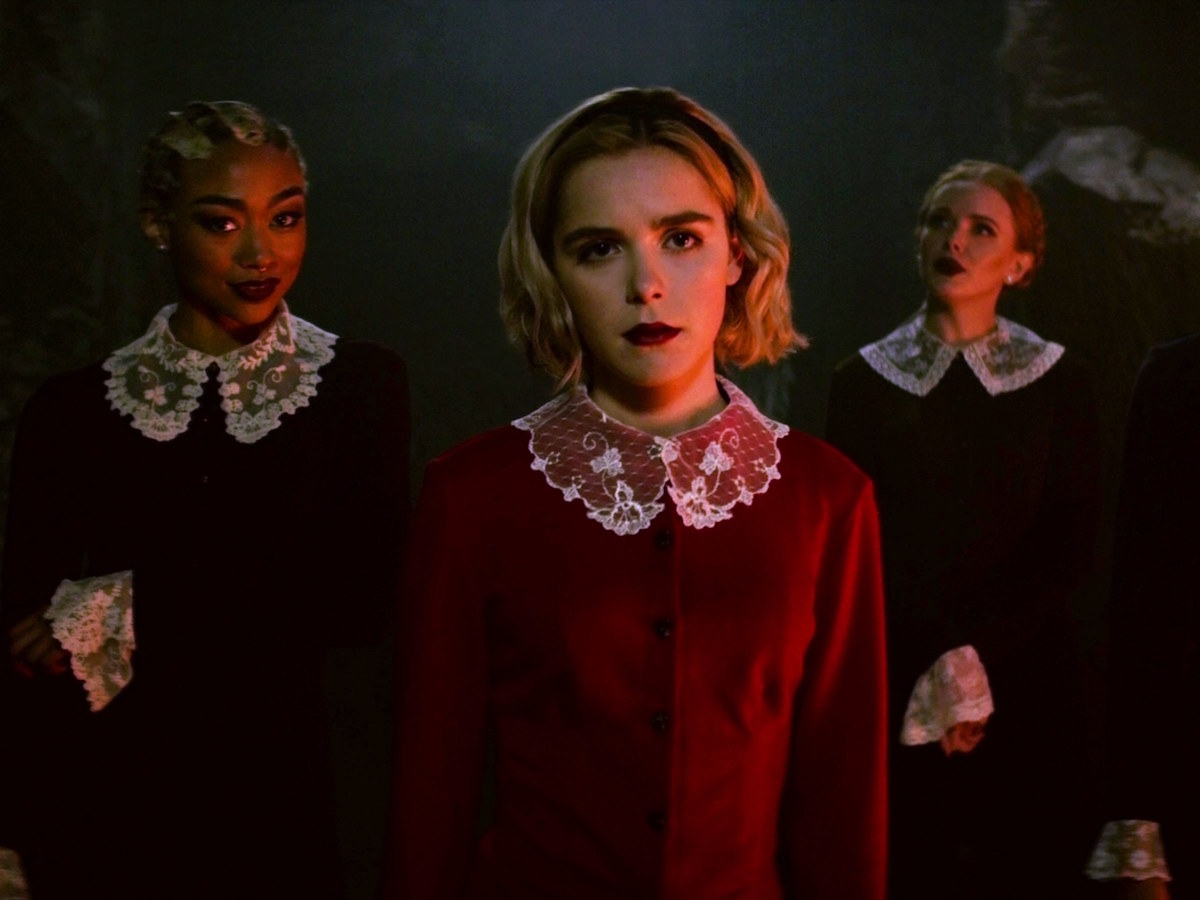Spoiler alert! You’ve been warned…
Netflix’s new series The Chilling Adventures of Sabrina is campy fun, perfect for binging on cozy fall nights. I enjoyed watching this teen horror/drama — a dark reboot of the ‘90s fave Sabrina the Teenage Witch — but I have to admit it falls short in many ways.
Straining itself to be feminist and inclusive, the show often fails at both. Deeply racist imagery and dynamics (including a literal lynching of a black woman) surround the show’s most prominent and unfairly vilified black character, Prudence Night. The show also features blatant homophobia and disregard of the necessity for consensual sexual activity.
But I also took issue with the Christian supremacy and appropriation of other religions that is weaved throughout the story. For instance, borrowing heavily from indigenous and black culture, Sabrina uses a Native American dreamcatcher to trap a demon. She also calls upon Tituba — a slave accused of witchcraft — for assistance in exorcising yet another demon.
And with the inclusion of our favorite Jewish demon Lilith, The Chilling Adventures of Sabrina also appropriates Jewish culture and religion.
Disguised as her teacher, Lilith introduces Sabrina to feminist authors and encourages her to rebel against the patriarchal religious system within The Church of Night. She doesn’t reveal her true identity as Lilith, or “Madam Satan,” until the series finale, but her identity is hinted at throughout the series, through her hatred of men and her feminist ideals.
In this respect, the show seems aware of the fact that Lilith has recently been reimagined as a Jewish feminist icon.
However, it’s important to note that the original Jewish texts (The Zohar and the Alphabet of Ben Sira) portrayed Lilith’s sexuality and freedom as demonic, which many Jewish women understandably regard as misogynistic. After all, the reason Lilith “fell from grace” was because she refused to have missionary sex with Adam, the first man and her husband.
The Chilling Adventures of Sabrina doesn’t challenge this hypersexual, evil image of Lilith. The Lilith on the show is not much different than the Lilith that Jewish feminists have rejected for years. She is sultry and seductive, using her body to make men her prey so that she can literally eat them. She is a murderer, the Mother of Demons, and the Concubine of Satan. She is everything that misogynists tried to define her as, simply because she was a woman that society could not bend to its submission.
The show does touch on Lilith’s feminist roots, by associating her with the gendered “witch hunts” that plagued America in the 18th and 19th centuries. But for a show that makes such a big deal out of paying homage to the struggles of women, it seems to be completely missing an understanding of what those witch hunts were about. They were stoked by fear of African and indigenous religion, and facilitated by the intentional casting of those religions as being demonic and evil when they were not.
The witches of The Chilling Adventures of Sabrina are, indeed, evil. They eat humans — who they call “long pigs” — and each other. They kill and torture with very little impunity, and are content with being agents of worldwide destruction, including rape and murder. Sabrina seems to be the only one with an intact conscience, and the show cringingly credits this to her split nature as “half-witch, half-Catholic.”
The show tries to be subversive and feminist, but there is no subversion in the suggestion that Christianity and white femininity is the ideal. There is no subversion in the portrayal of voodoo and indigenous spirituality as akin to demon worship. There’s no subversion in implying that Jewish demons eat babies and men. There’s no subversion in a patriarchal and misogynistic portrayal of Lilith.
By placing a Lilith, a Jewish figure, firmly at the helm of this Satan-worshipping cult, the show sends the (hopefully) unintended message that everything that isn’t Christian is evil and can be swept into a broad category of devil worship.
Lilith may be a demon, but she’s a Jewish one. It’s weird to see her as part of a religious movement that’s so clearly based in Christianity (yes, even though she exists in direct contradiction to it). It’s also upsetting to see the disregard for the Jewish scholars who have re-told Lilith’s story. They want people to reject her status as a demon and transform her into what author Lilly Rivlin described in her 1972 article in Lilith Magazine as “a female symbol for autonomy, sexual choice, and control of one’s own destiny.”
It’s telling that The Chilling Adventures of Sabrina takes no account of Jewish, black, or indigenous women’s autonomy over their own narratives, as the show picks apart the culture and religion of those groups to make their show more interesting.



